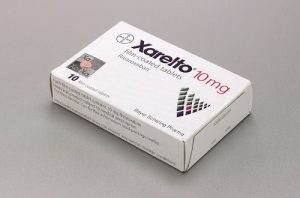Bayer Schering Pharma restricts UK distribution
pharmafile | April 2, 2009 | News story | Manufacturing and Production | Bayer
Bayer Schering Pharma has joined the ranks of firms switching to restrictive distribution arrangements in the UK.
The pharma company, which is the prescription medicines arm of Bayer HealthCare, is following a trend set by GlaxoSmithKline, Pfizer, AstraZeneca and Novartis.
Around 30 of Bayer Schering Pharma's drugs are affected, including erectile dysfunction brand Levitra, antibiotic Ciproxin and blood pressure treatment Adalat.
From July, these and other products will be sold only through wholesalers AAH Pharmaceuticals, Alliance Healthcare (Distribution) – formerly UniChem – and Phoenix Healthcare Distribution.
Williams Medical Supplies will handle Bayer products for non-dispensing doctors.
In a statement the company said: "Bayer is keeping pace with recent market developments by moving to this model. By simplifying our supply chain, we will see improvements in continuity of supply for UK patients."
The selected wholesalers have full UK coverage and will be able to open accounts with new customers, it insisted.
Distribution arrangements of Bayer's consumer care and diabetes care products remains untouched for now. The relevant divisions of the company "have decided not to change their distribution processes at this time", Bayer said.
Wholesalers will be able to purchase product from Bayer until 1 July.
Restricted distribution schemes
The trend of working with a restricted number of distributors was set by Pfizer, which unveiled a single distributor deal with UniChem in March 2007.
Part of the manufacturer's justification was that such a move should reduce the risk of counterfeits getting into the supply chain.
The Office of Fair Trading (OFT) subsequently looked into manufacturers' restricted wholesaler schemes following complaints from doctors.
Losers under these new systems are thought to include those wholesalers, which fall outside the scheme, and pharmacies. The latter's losses are likely to be in discount and service levels.
The OFT's report suggested that the NHS will pay £50 million a year for each percentage point reduction in pharmacy discounts.
Yet despite the fact that it said the NHS could have to pay more for drugs, the OFT decided at the end of 2007 that such practices could continue.
However, Pfizer has said that the NHS has not had to pay more for its drugs since its scheme was introduced.
Related Content

Bayer and Aignostics to collaborate for AI oncology research
Bayer and Aignostics have announced that they have entered into a strategic collaboration for several …

Bayer’s cardiovascular drug shows impressive Phase III results
Bayer’s finerenone drug has been shown to significantly reduce cardiovascular death or other cardiovascular events …

Bayer’s venous thromboembolism drug Xarelto gets UK approval for children
Bayer has received UK approval for the use of its oral Factor Xa inhibitor Xarelto …








